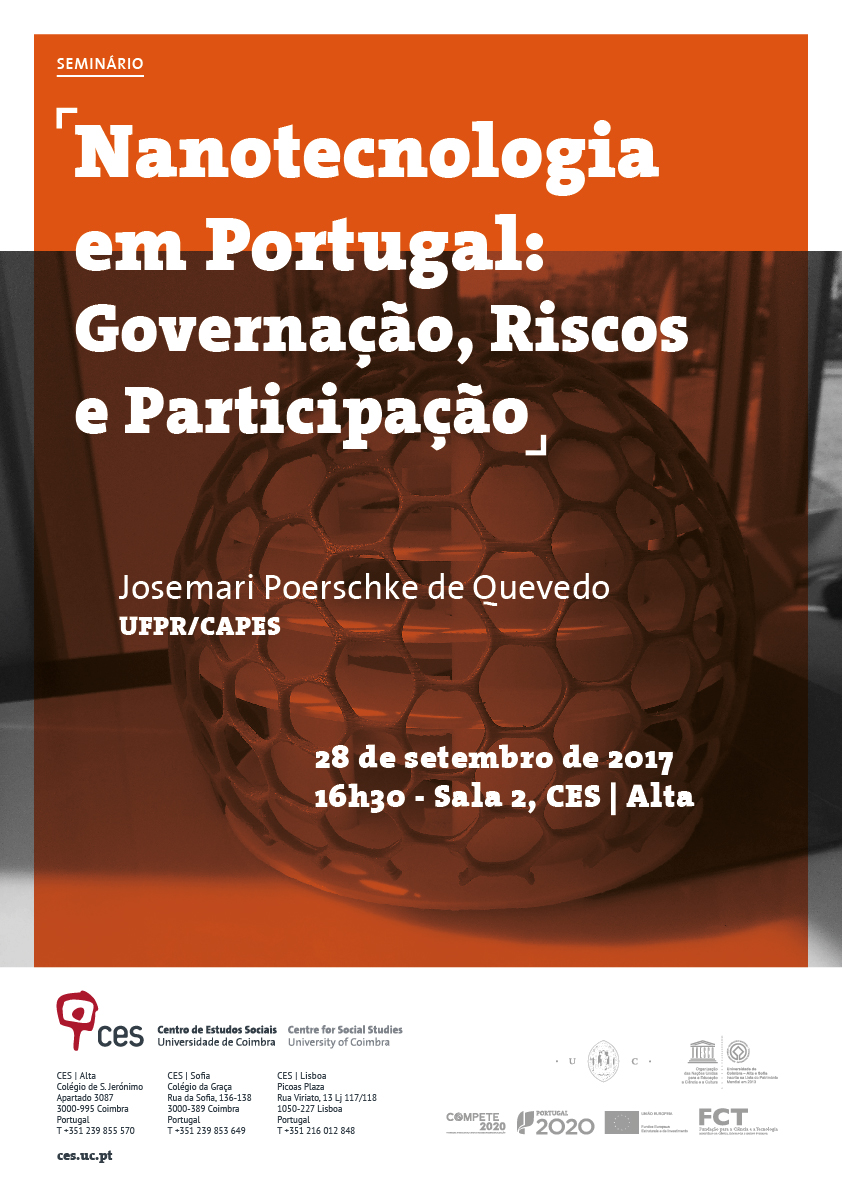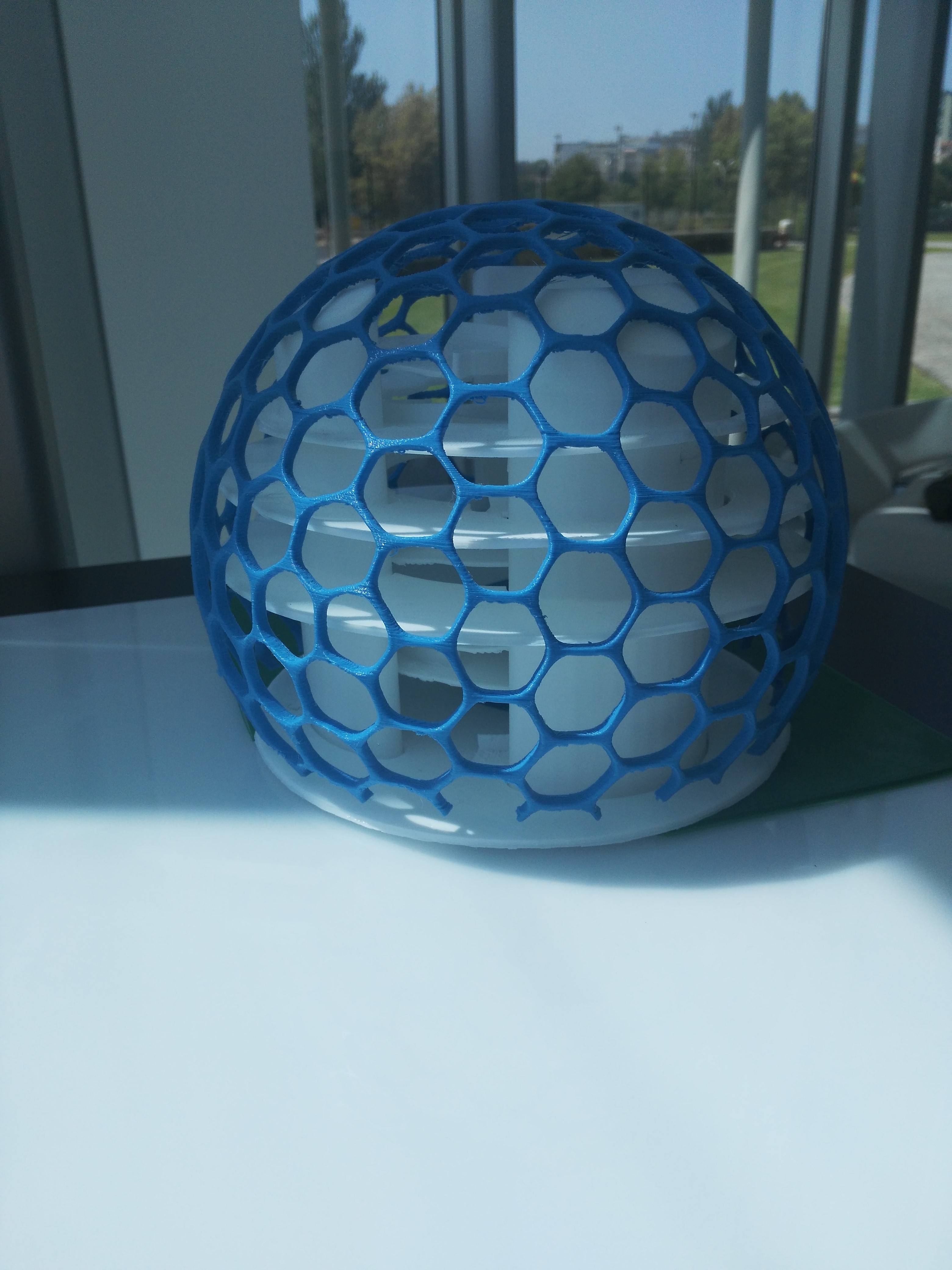Seminar
Nanotechnology in Portugal: Governance, Risks and Participation
Josemari Poerschke de Quevedo (UFPR/CAPES)
September 28, 2017, 16h30
Room 2, CES | Alta
Abstract
In this presentation, we intend to discuss the results of a year of field research on public actions focused on nanotechnology in Portugal. From constructivism approaches of science and theories of public policy analysis, the elements that compose the understanding of scientific stakeholders about this key area in the country will be discussed, considering the governance of this technology under three axes of formulation: innovation practices, risk concerns and participation forms. The analysis focuses on the parameters of implementation of actions directed to nanoscience in the main research centres of reference in Portugal and how nanotechnology is translated by these nanoscientists in light of the elements of the international debate on scientific controversy. Finally, a mapping of the distribution of public resources for research projects explicitly in NT in the regions of the country will be presented.
Framework
Nanotechnology (NT) emerged in the 21st century as a new platform of innovation that promised to revolutionise science, becoming, as early as the beginning of the millennium, object of public policies of science, technology and innovation (PSTIs) in several countries, including Portugal and Brazil. Displayed as the focus of progress in the myriad of the achievements of discovery of electricity, it has become a scientific controversy due to the lack of data and complete tests on impacts and the problematic around public perception of the pervasiveness by which it is embedded in the social world through products such as electronics, pharmacological and medical solutions, cosmetics, food, among others. If biotechnology and the digital communication boom emerged decades ago from different transforming fields, nanotechnology differentiates itself by converging as an integrating field of both and of others, resulting from the possibility of manipulation of the most diverse elements and processes at the nanoscale. Therefore, this paradoxical technological platform brings together uncertainties about environmental, health and safety (EHS) risks, and ethical, legal and social (ELS) issues stemming from potential not fully dimensioned effects. This field of scientific controversy is directed to a social controversy that is being debated by the scientific community interested in dealing with the problematics of the power of laboratories in the development of technologies and the deficits of public control. The outlook includes mobilisations that demand a minimally obligatory regulatory framework and public participation in the design of the technology to solve and control uncertainties and risks.
Bio note
Josemari Poerschke de Quevedo - Ph.D. candidate in the Post-Graduate Programme in Public Policies of the Federal University of Paraná - UFPR (2015-2019). As researcher and Ph.D. scholarship holder in Brazil, she is a member of the research groups CNPq Tecnologia, Sociedade e Desenvolvimento (TESD) and Comunicação Eleitoral (CEL), both of which are linked to UFPR.
Has as research interests: Emerging Technologies; ST&I Policies, Environment and Health; Communication and Politics; Journalism.
Currently conducting a Ph.D. internship at the Centre for Social Studies of the University of Coimbra, under supervision of Chiara Carrozza and Tiago Santos Pereira.
MA in Communication and Politics from the Post-Graduate Programme in Communication and Information of the Federal University of Rio Grande do Sul (2010).
Holds a degree in Social Communication, qualification in Journalism - UFRGS (2006). With more than 10 years of professional experience, she acted as a press officer of a trade-union; reporter and editor in the editorials of Politics, Economy and Culture in printed and digital journalism companies; and press and product advisor for contents agencies.
_______________
This seminar is organised under the Doctoral Internship Project “Entre semelhanças e diferenças: as trajetórias das políticas de nanotecnologia do Brasil e de Portugal” [Between similarities and differences: trajectories of nanotechnology policies in Brazil and Portugal], developed under the CAPES-FCT, Project No. 23038.002469/2014-65, within the Post –Graduate Programme in Public Policies of the Federal University of Paraná (4P/UFPR) and the Doctoral Programme in Governance, Knowledge and Innovation of the University of Coimbra.



